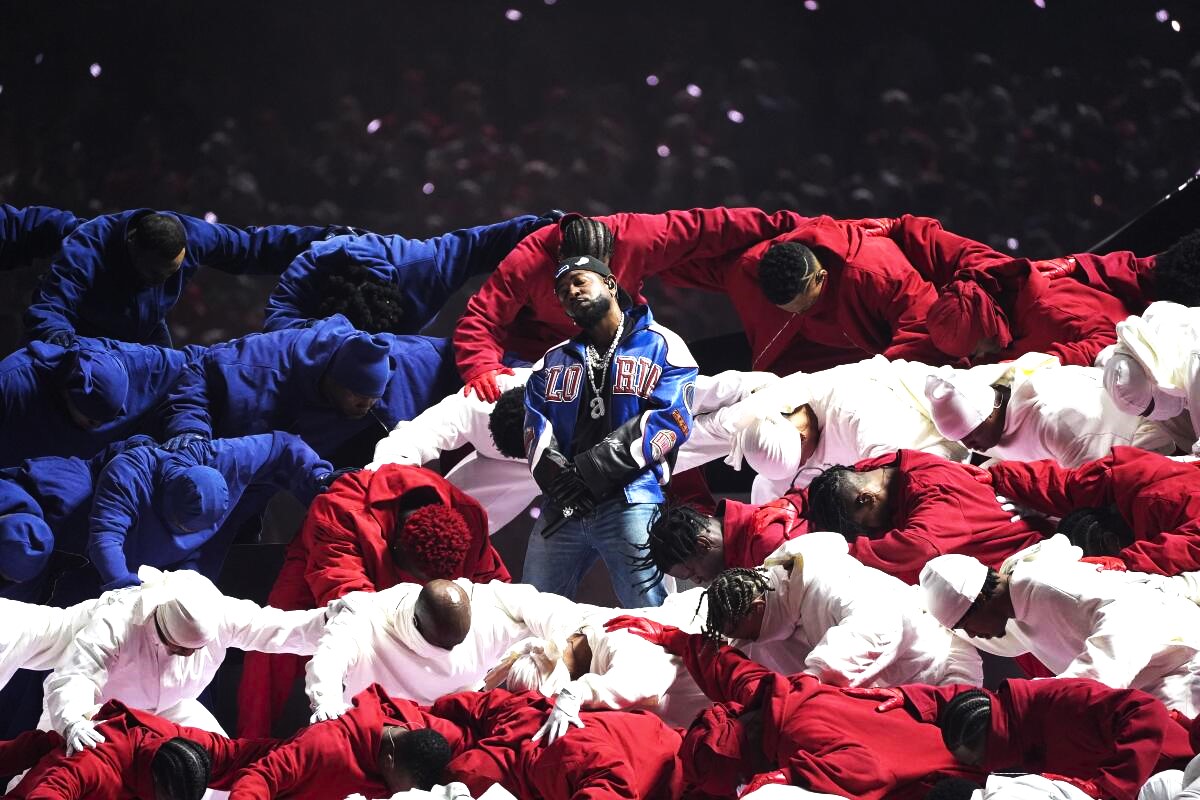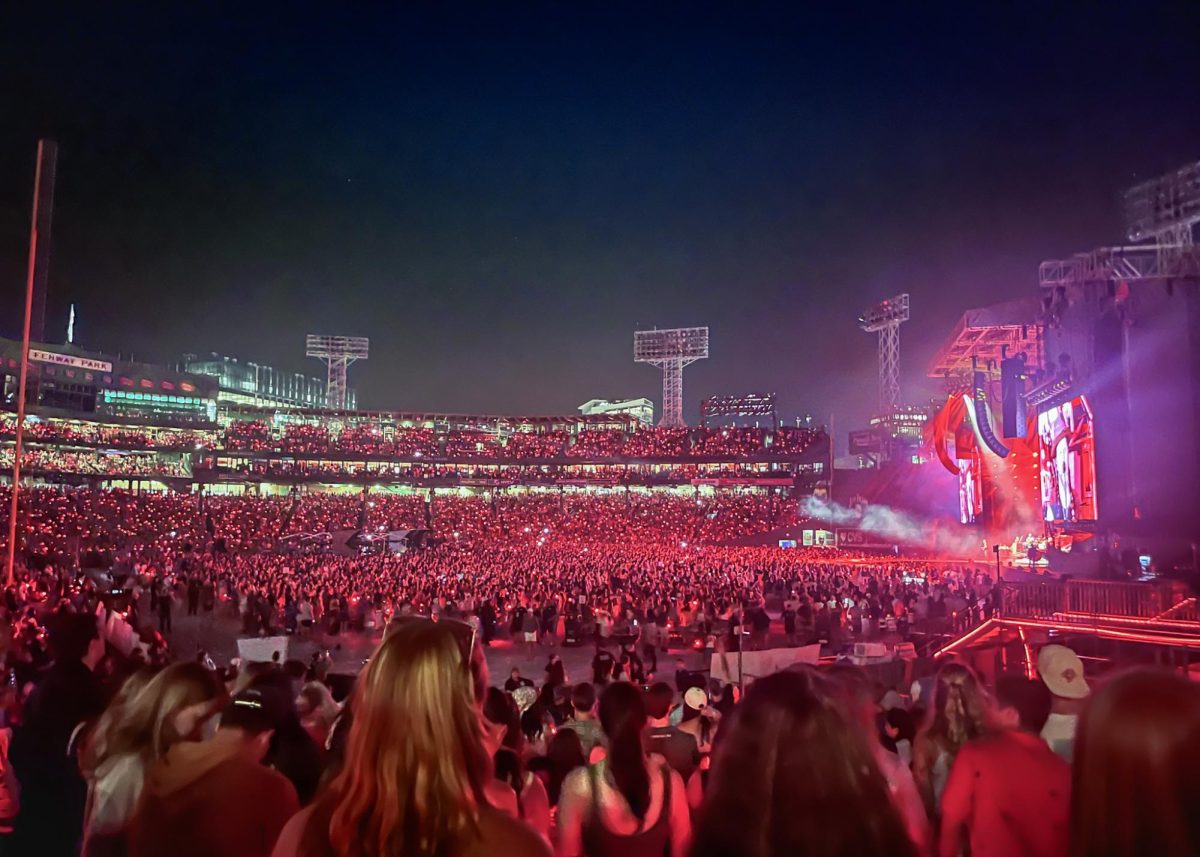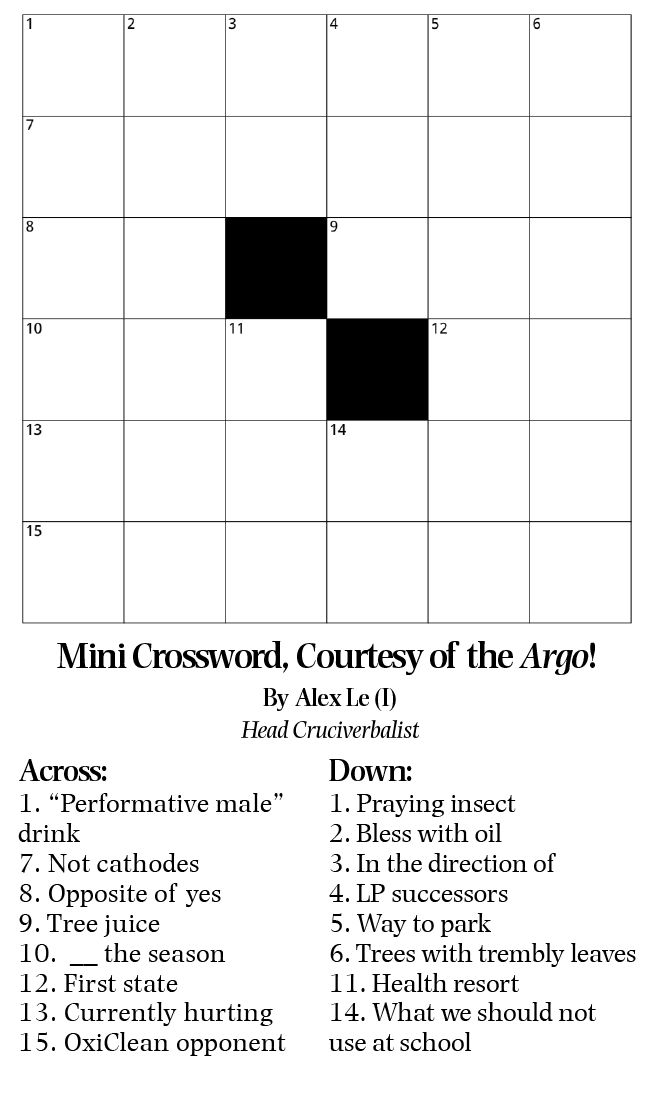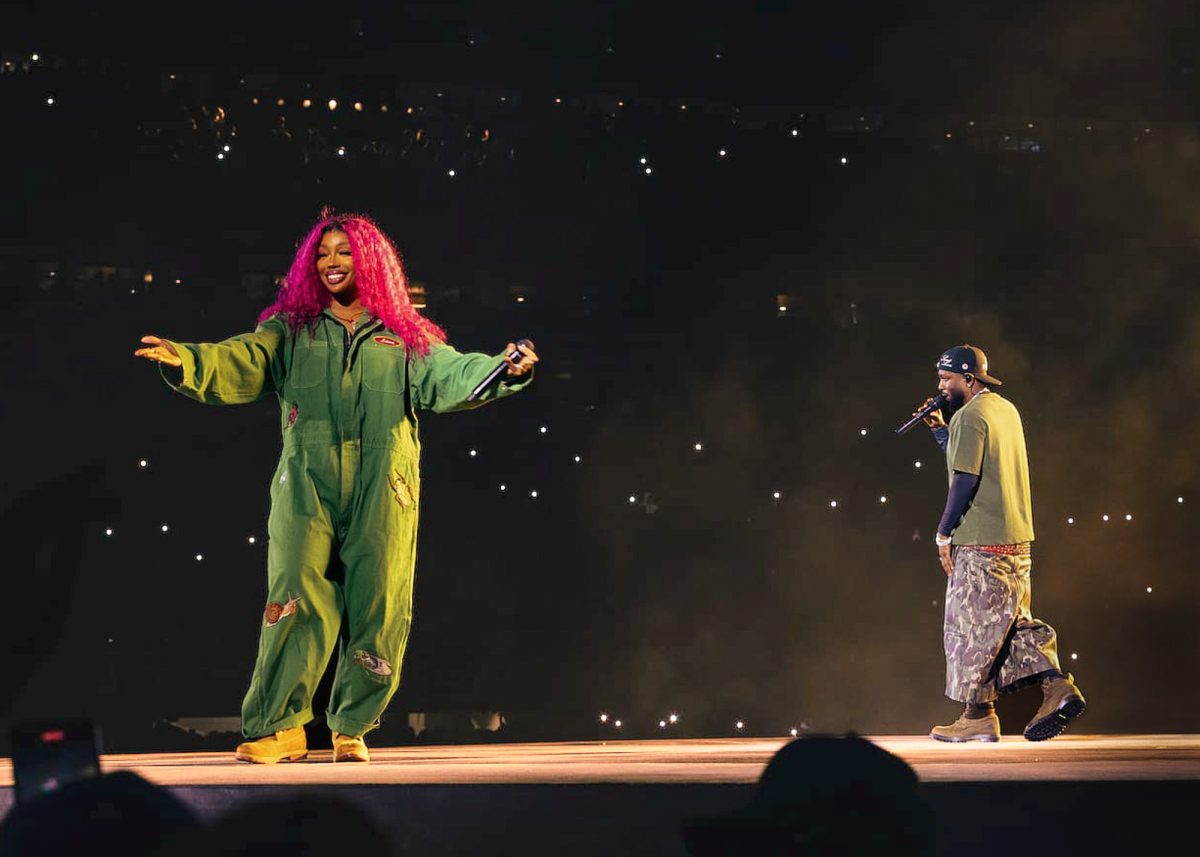On February 5, Kendrick Lamar graced the Super Bowl LIX with his Apple Music halftime show, becoming the first solo rapper to lead a Super Bowl show. It was the most watched Super Bowl halftime performance of all time, followed by Michael Jackson’s performance in 1993. This also marks Lamar’s second time performing at the Super Bowl, having performed with Dr. Dre, Snoop Dogg, Mary J. Blige, Eminem and 50 Cent in 2022.
Before the performance begins, the camera pans out to reveal lights in the audience that load until 100 percent, eventually spelling out the word “START,” establishing a video-game theme. The audience then receives a visit from Uncle Sam, played by decorated actor Samuel L. Jackson, who introduces the show as the “Great American game.”
“Generally in U.S. History, Uncle Sam represents the U.S. government and [their] agenda,” explains Boston Latin School AP U.S. History teacher Ms. Ashley Balbian. “And Uncle Sam had a disapproving tone and symbolized what people ‘think’ [Kendrick] should be doing.”
This Uncle Sam character returns throughout the performance, usually arguing with Lamar and calling his songs “too ghetto.” He says that the rapper bringing out his “homeboys” is the “old culture cheat code.” Toward the end of the performance, however, Uncle Sam praises Lamar for playing his more popular hits (coincidentally ones that are less conscious and political). The character, however, walks off in exasperation when “Not Like Us,” a track that honors Lamar’s Compton roots, begins to play.
Some viewers believe that these belittling criticisms aimed toward Lamar are meant to represent America’s criticism of Black people and their culture. Others interpreted Uncle Sam’s character to symbolize the government’s past and its current at appeasing “white America” while stifling black voices.
“It spoke to me. I think it spoke to every single Black person who watched that show,” remarks Olurimi Alofe (I).
This symbolism continues in Charm LaDonna’s choreography, which was praised for its thought-provoking messaging. While on stage, the dancers donned either red, white or blue outfits, correlating to the colors of the American flag, which ties into Lamar’s ongoing theme of American history. A notable example of Lamar’s consistent symbolism and storytelling is through his 2018 performance of “HUMBLE,” where backup dancers form the image of the American flag and Lamar is found at the center. Fans speculate this portrayed how America was built off “the backs” of Black men but America seems to forget Black culture and Black contributions.
“Du Bois called it ‘double consciousness.’ The experience of being Black in America is to know everything about African American culture, but also mainstream American culture, which we largely [recall] as white American culture,” explains BLS AP African American Studies teacher Mr. Brian Smith.
In his performance, Lamar further highlights America’s mistreatments of Black Americans with several nods to African American history in his presentation of GNX’s squabble up. He announces that “the revolution’s about to be televised, you picked the right time but the wrong guy.” This is a reference to a song by prominent activist and poet Gil Scott Heron, promptly titled, “The Revolution Will Not Be Televised.”
Mr. Smith explains: “The reason why it won’t be televised is because it’s happening inside […] his literal quote was that the revolution first has to happen in our minds.” He also believes that Lamar positions himself as consciousness and asks America if they’re ready for what he brings to the table.
Those who are well-versed in American history, or are avid fans of Lamar’s 2015 album To Pimp a Butterfly, may have perked up during Lamar’s tease of “Not Like Us,” where he said, “40 acres and a mule, this is bigger than the music.” This is a reference to the period of Reconstruction after the American Civil War which promised formerly enslaved Black people 40 acres of land taken from the Confederacy and a mule. President Andrew Johnson, however, reversed this order, and it has since become a symbol of empty promises that America gave to Black Americans.
In addition to the history Lamar brought to the stage, the performance fueled the fire of the infamous Kendrick v. Drake feud. While the crowd chanting “A-minor,” must’ve struck a nerve, Lamar also brought out other notable figures from Drake’s dating history.
During diss track “Not Like Us,” Serena Williams, Drake’s ex-girlfriend, was smoothly and care-freely crip walking, a dance commonly associated with the Crips street gang in Los Angeles County, which holds Lamar and Williams’s hometown of Compton, California. This is also a jab at America attempting to dissolve Black culture, as in the past, Williams faced immense backlash for C-walking after her victory at the 2012 Wimbledon tournament.
“I think for Serena Williams, such a prominent figure in sports history and a black woman as well, to be doing that […] on a global platform, I think is really empowering,” comments Alofe.
Lamar also brought out SZA, who dated Drake in 2008. Drake and SZA’s short-lived reconciliation is marked by hit songs “Slime You Out” and “Rich Baby Daddy,” before falling out again due to SZA’s “OVO mole” accusations. This Top Dawg duo elegantly performed their 2018 hit song “All The Stars” and their most recent collaboration “Luther.” They will embark on their highly anticipated “Grand National Tour” beginning mid-April this year.
Although gaining 133 million viewers the night of the Super Bowl, Lamar’s success only continued to grow. 48 hours after the Super Bowl, Lamar broke the record for most streamed rapper on Spotify, a position previously held by Drake, with a whopping 88.8 million monthly listeners. Additionally, with the widespread discourse of the performance’s symbolism and Conan O’Brien alluding to Lamar’s performance at the 97th Academy Awards, Lamar solidified the immense influence his artistry and talent brought to both the Superbowl and the music industry.
Categories:
Kendrick Lamar and the Great American Game
By Kenneth Cacho-Bermudez (II), Staff Writer
March 26, 2025
0








